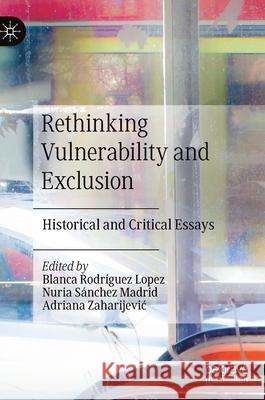Rethinking Vulnerability and Exclusion: Historical and Critical Essays » książka
topmenu
Rethinking Vulnerability and Exclusion: Historical and Critical Essays
ISBN-13: 9783030605186 / Angielski / Twarda / 2021 / 232 str.
Rethinking Vulnerability and Exclusion: Historical and Critical Essays
ISBN-13: 9783030605186 / Angielski / Twarda / 2021 / 232 str.
cena 442,79
(netto: 421,70 VAT: 5%)
Najniższa cena z 30 dni: 424,07
(netto: 421,70 VAT: 5%)
Najniższa cena z 30 dni: 424,07
Termin realizacji zamówienia:
ok. 16-18 dni roboczych.
ok. 16-18 dni roboczych.
Darmowa dostawa!
Kategorie BISAC:
Wydawca:
Palgrave MacMillan
Język:
Angielski
ISBN-13:
9783030605186
Rok wydania:
2021
Wydanie:
2021
Ilość stron:
232
Waga:
0.50 kg
Wymiary:
21.01 x 14.81 x 1.91
Oprawa:
Twarda
Wolumenów:
01
Dodatkowe informacje:
Wydanie ilustrowane











